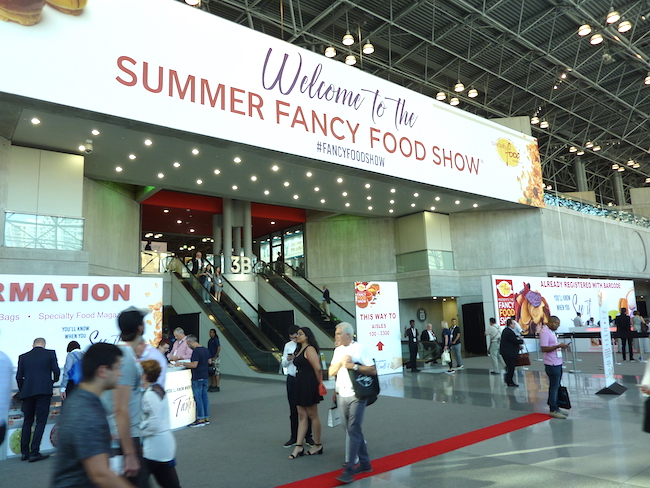
The Struggle of Young Companies Who Want to Go Organic and a Call to the Industry for Help
As I roamed the Jacob Javits Center at this year’s Fancy Food Show in New York City, one thought kept coming into my head — we need to be doing more for young organic companies.
This was largely the result of the amount time that I spent in the Incubation Village section of the show, a special area where the Specialty Food Association invited 11 food incubators from around the country to showcase their most prominent brands.
Out of the 50 or so brands in the Incubation Village, I recall seeing just two that were certified organic. Unfortunately, what I heard far too often was “we’d like to go organic but we just can’t make the numbers work” or “we couldn’t find an organic ingredient that we needed.”
Natalie Shmulik, CEO of Chicago-based The Hatchery, one of the incubators at the show, spoke with me about this challenge.
“What we hear is ‘If we could do organic, we would.’ In the very beginning, when companies can literally communicate with all of their customers about ingredients, it is not an issue. It is more of an issue when they start to ramp up and are not there to speak directly with their customers. That is when they begin to explore organic certification. This is not easy, and we want to help these organizations,” she said.
The Hatchery is building a brand new, start-of-the-art 67,000 square foot facility that will have private production facilities and 56 food grade spaces that are modular. This will make it much easier for these companies to get organic and other certifications, as they will not have to deal with cross-contamination and sharing a production space with a non-organic brand.
Furthermore, The Hatchery has numerous corporate partners that assist its young companies with ingredients, sourcing, microlending and financing, recipe development, education and a wide variety of operating resources, such as marketing, branding and distribution.
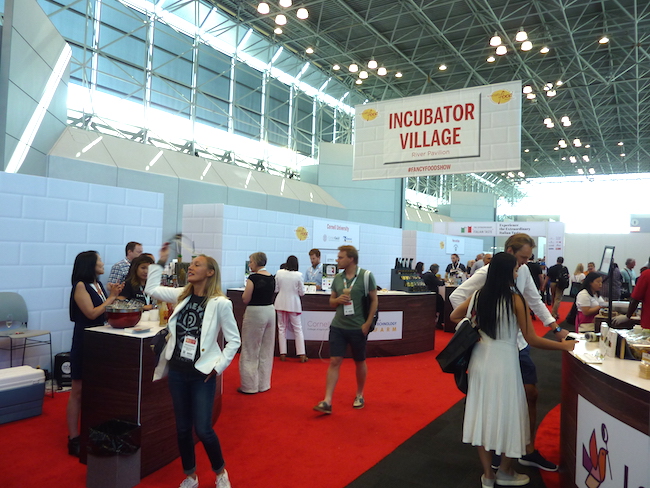
Without question, this incubator is providing an incredibly valuable service to its companies, but the reality is that most young organic companies do not have access to such an incubator or if they do, they still may have sourcing or purchasing power challenges.
That is where the organic industry needs to step in. If we can create a collective and aggregate the purchasing power of many young brands, we can help them lower the cost of ingredients and remove potential impediments to obtaining organic certification.
Furthermore, if we can provide guidance, mentoring or assistance in locating certain organic ingredients, that will benefit them as well.
By helping young companies become certified organic, not only will it drive demand for organic raw materials, but it will discourage them from going down the path of simply being an “all natural” or “Non-GMO” brand. The entire organic ecosystem benefits in every regard, including farmers.
One prominent venture capitalist, who invests heavily in the organic food and beverage space, told me that some mature brands may not be so eager to give up sources of supply that they have worked hard to discover or develop. That may very well be the case.
While we fully realize that the organic industry operates under a capitalistic model and that one company has no obligation to help another, the more organic businesses we have and the more young brands that are purchasing organic, regenerative ingredients, the better off we all are.
As someone who has attended dozens and dozens of organic food shows, I still continue to hear young companies saying that “we can’t make the numbers work” or “we couldn’t find an organic ingredient that we needed.” This has to change.
If you are interested in starting a conversation about a possible solution to this or have a sourcing/supply chain expert at your company that may want to donate his or her time, please reply to this email or contact max@organicinsider.com.
***********
On Living Maxwell, I just put up my Top 5 Organic Products at Fancy Food Show 2018.
Here are some other interesting products that I saw at the show and at Good Food Mercantile, a fantastic specialty food show that took place in Brooklyn the day before Fancy Food. While a majority of the products below are certified organic, the ones that are not use mostly organic ingredients or are pesticide-free.
FROM THE FANCY FOOD SHOW
Another excellent plant-based pasta — this time, black bean and sesame fettuccine — from Explore Cuisine.
Suja has rolled out a new line of shots, and its Energy one impressed me the most. With reishi and coffeeberry, this shot packs 100 milligrams of caffeine!
Ever heard of adzuki bean tea? Neither have I. Very interesting drink from Japan’s Endo.
Another organic tea from Japan, this one from Nodoka. The Japanese drink hojicha with meals, as it is supposed to help with digestion.

The hibiscus honey ginger from Makomas had excellent flavor, and sales of the company’s drinks help provide meaningful economic opportunity to women in Burkina Faso, West Africa.
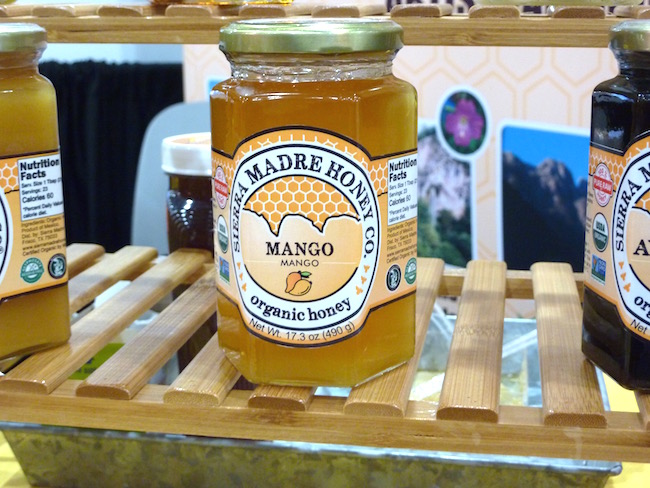
This variety of Sierra Madre Honey Co. collects nectar from the leaves of organic mango trees. Plus, all of Sierra Madre’s honey is Glyphosate Residue-Free Certified.
FROM THE INCUBATION VILLAGE AT THE FANCY FOOD SHOW

Essentially, this is an organic version of Starburst candy. Great innovation by Spark Organics.
Incubated by The Hatchery in Chicago.
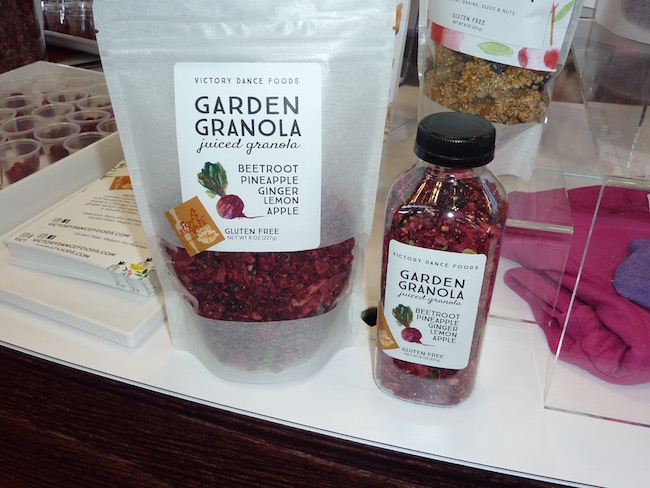
Victory Dance Foods, maker of gluten-free granola with beetroot and pineapple, took home a 2018 SOFI Bronze Award in the granola/cereal category
Incubated by The Hatchery in Chicago.
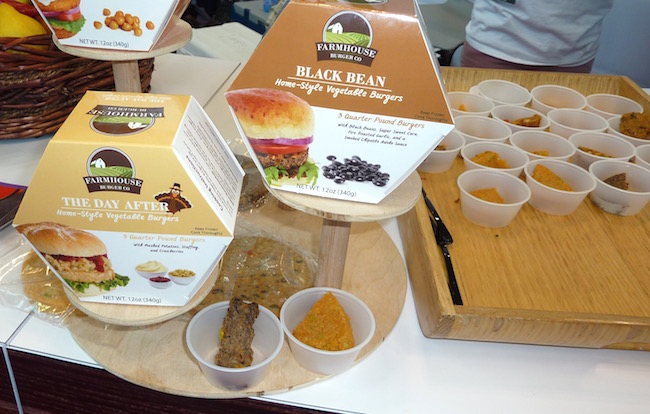
This veggie burger from Farmhouse Burger Co. was outstanding. Perfect texture, excellent flavors.
Incubated by CommonWealth Kitchen in Massachusetts.
FROM GOOD FOOD MERCANTILE

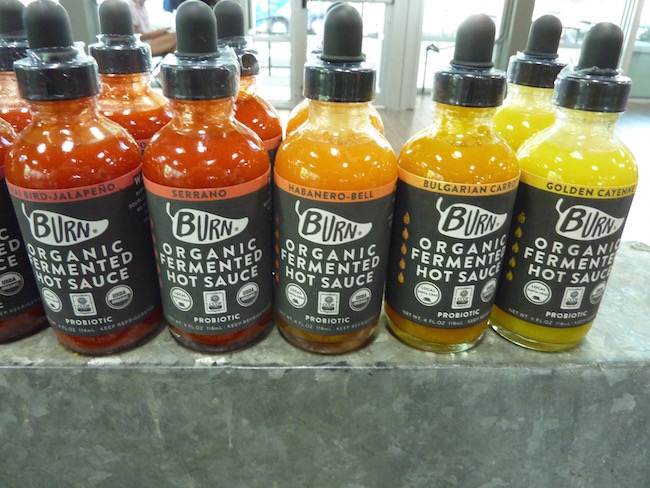
Some amazing flavors from Burn, a California-based company making organic fermented hot sauces, jalapeños and chili peppers.
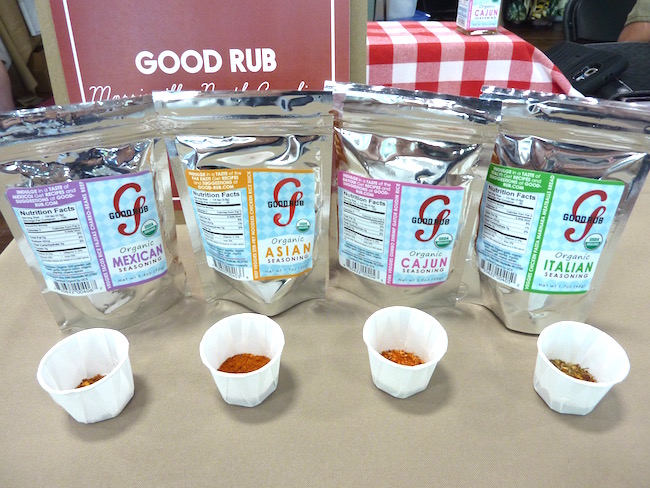
Fantastic organic seasonings from Good Rub in North Carolina.

Turmeric being grown in Massachusetts?
Old Friends Farm said they received a grant to do just that, and it seems to be working well. Very cool line-up of honey products.
As a Massachusetts native, I need to pay a visit to this farm.
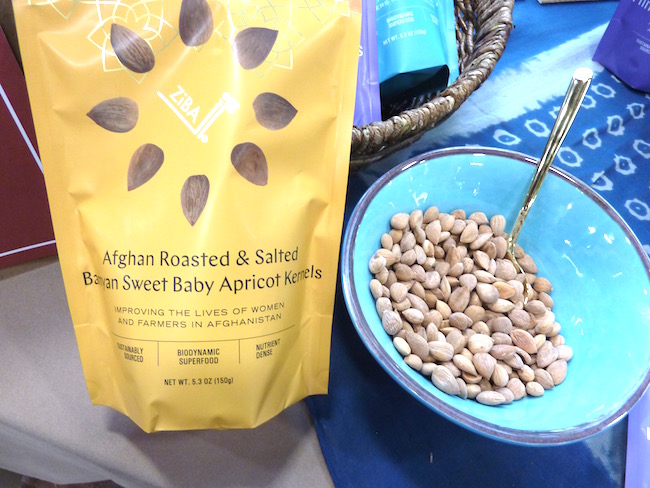
These baby apricot kernels from Ziba were outstanding. Perfect crunch.
 |
Have a great day! 
Max Goldberg, Founder |
Quick Hits
* The Senate passed its version of the farm bill — a much more favorable one to organic — and now both the House and Senate will have to merge the two.
* Here is the Organic Trade Association’s recap of both bills. One enormous difference is that the House version would cut all funding for the organic certification cost share program, which would be a massive blow to organic farmers and could cause many of them to drop out of organic entirely.
* When should we expect a final farm bill to be signed? It is hard to say, but current farm programs begin to expire on September 30th. So, the pressure is on.
* WeWork has entered the retail space, and a select number of organic brands, such as Barnana, already have a presence there.
* Mark your calendars. The Climate Collaborative will take place at Expo East from 1-3pm on Wednesday, September 12th. The trade show floor opens on the 13th. You can register HERE for the event.
* Congrats to Sarah Goldberger, founder Lord Jameson Dog Patisserie, a gourmet organic dog treat company, for winning the Taste of Life Essentials Award in the Special Pet Section.
Weekly News Summaries


Nature's Path Quits the OTA as a Protest to Save Organic
Nature’s Path Foods, North America’s largest organic breakfast company and one of the most respected brands in the industry, announced its resignation from the Organic Trade Association (OTA). The company cited concern that the OTA is pushing a non-organic agenda, which threatens the future of organic.

WOW! GMA Wants Full Labeling on All Genetically-Modified Sugars and Oils
By Elaine Watson
In what would have been absolutely unthinkable just a few years ago, the Grocery Manufacturers Association, a trade group that spent tens of millions of dollars fighting GMO-labeling, has now come out and said it supports full labeling of all GMO oils and sugars.
Bloomberg Slams Proposed GMO-Labeling Standards
By David Shipley
Even though Bloomberg claims that GMOs are safe -- something that the organic industry does not agree with -- it slams the USDA's proposed GMO-labeling standards and insinuates that they are 'propaganda' and potentially 'misleading.'
Policy Changes at Whole Foods is Taking a Toll on Some Suppliers and Employees
By Heather Haddon and Laura Stevens
As some employees threaten to unionize amid an uncomfortable streamlining of operations, some brands are seeing an uptick in sales after Amazon's purchase of the company last year.

Earthbound Farm May be Up for Sale
By Manuel Baigorri and Kiel Porter
It has been reported that Danone will divest organic produce company Earthbound Farm, with a rumored price tag of $500M.

Glyphosate Contamination Problems Surface in the UK
By Katy Askew
With organic grains having suffered glyphosate contamination, the case is being made that current methods to separate organic and conventional farming are not working.

Impossible Foods Continues its 'Anti-Science' Crusade Against Critics
By Stacy Malkan
Whenever someone dares to question the safety of the Impossible Burger, even when it is Bloomberg or The New York Times, the company's PR representative unleashes her 'anti-science' rant.

PCC Community Markets Commits to go Plastic-Free in its Deli by 2022
By Jeff Wells
PCC Community Markets, the country’s largest natural foods cooperative, currently uses about 5 million plastic containers in its deli department annually and intends to replace these with biodegradable alternatives by 2022.
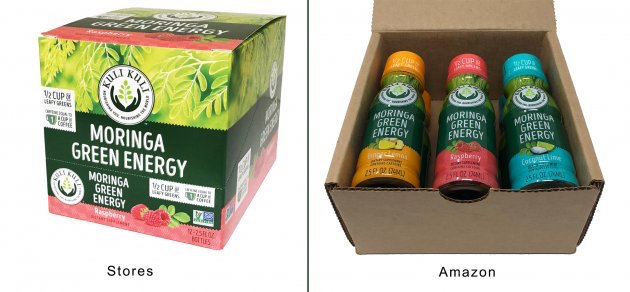

How Brands are Redesigning Their Packaging to Sell Better Online
By Michelle Cheng
Amazon's acquisition of Whole Foods has forced brands to reassess how their products are merchandised online.

AccelFoods Leads a $1.9M Round for Tea Drops
By Elaine Watson
Tea Drops, which makes bagless, organic tea drops that disintegrate in your cup, has just closed on a $1.9M round of financing.

Organic Menu Challenge to Launch This September
As part of the Soil Association's Organic September in the UK, restaurants and cafes are being encouraged to utilize more organic ingredients.
The material in this newsletter is copyrighted and may be reprinted by permission only. All requests must be in writing. Please use our contact form to request republication rights.
Newsletter Archive
Quick Hits
* The Senate passed its version of the farm bill — a much more favorable one to organic — and now both the House and Senate will have to merge the two.
* Here is the Organic Trade Association’s recap of both bills. One enormous difference is that the House version would cut all funding for the organic certification cost share program, which would be a massive blow to organic farmers and could cause many of them to drop out of organic entirely.
* When should we expect a final farm bill to be signed? It is hard to say, but current farm programs begin to expire on September 30th. So, the pressure is on.
* WeWork has entered the retail space, and a select number of organic brands, such as Barnana, already have a presence there.
* Mark your calendars. The Climate Collaborative will take place at Expo East from 1-3pm on Wednesday, September 12th. The trade show floor opens on the 13th. You can register HERE for the event.
* Congrats to Sarah Goldberger, founder Lord Jameson Dog Patisserie, a gourmet organic dog treat company, for winning the Taste of Life Essentials Award in the Special Pet Section.
